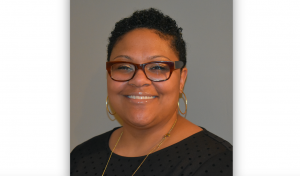SCVP dealt setback
Published 3:21 pm Monday, October 14, 2019
The establishment of a forensic advocacy center by the Southside Center for Violence Prevention (SCVP) in Prince Edward County has come to a halt after Prince Edward Commonwealth’s Attorney Megan Clark withdrew her written support of the program.
The SCVP, which already runs a shelter at an undisclosed location in Farmville, provides confidential and free services to both adults and children affected by sexual and domestic violence.
According to Forensic Advocacy Program Director Monica Ratliff, SCVP was in the process of opening a forensic advocacy center to citizens of Prince Edward County. The center would provide residents with resources following an incident, including advocacy for victims trying to navigate the medical and legal system.
SCVP anticipated offering forensic interviews to the citizens of Prince Edward County starting July 1 of this year and sexual assault examinations starting Oct. 1.
Ratliff explained that in order to offer services to the county and receive Childhood Advocacy Center (CAC) accreditation, SCVP had to secure a Memorandum of Understanding (MOU) with the Prince Edward County Department of Social Services, the Farmville Police Department, the Prince Edward County Sheriff’s Department and the Commonwealth’s Attorney.
Ratliff stated that the initial opening of the center looked hopeful before Clark withdrew her support in July.
“We had everybody on board, including Megan. We had all signatures. We went to the Prince Edward County Sexual Assault Response Team (SART) meeting and a Centra representative showed up and announced that they were putting five full-time forensic nurses in Gretna. There was also some information presented at the meeting that we discussed between Southside and Centra about different policies, protocols, procedures, that sort of thing.”
“After the meeting,” Ratliff continued, “Megan sent an email that afternoon that said that she was withdrawing support and didn’t really give us a lot of other information as to why. It was just temporary rescindment. She did not send the email to the other MOU signatories. Originally, it was just sent to us.”
Ratliff stated that SCVP notified the other signatories about Clark’s withdrawal of support and attempted to arrange a meeting. In a letter received by The Herald from SCVP Executive Director Dr. Laaksonen, the organization cited that Clark was unwilling to meet unless Centra’s Lynchburg Forensic Nursing Program was present.
“We were in the process of working with Centra Southside in Farmville. We had reached out to them and originally they seemed very supportive of our program as a different option for victims,” Ratliff added.
According to Laaksonen’s email, “The Commonwealth’s Attorney reported concerns that included the ability of any nurse who may work with us to be unbiased, to be able to fulfill their duties in evidence collection, or to be appropriately trained to perform medical-forensic exams.”
The email continued, “These are valid concerns for anyone performing medical care and the very reason why degrees, trainings, certifications, licenses, and professional memberships exist and require a standard of competent and ethical practice.”
Due to Clark’s withdrawal of support, the SCVP’s MOU has become void and the center has become limited in the services that they can offer clients in Prince Edward.
Ratliff went on to say, “We even had a case that came up in the very beginning when we started, after July 1. We reached out to Megan about that as well— meeting up for that case and discuss- ing the case specifics, and she refused. She refused to take any of our evidence related to the case.”
“So, our organization serves a 12-county radius,” Ratliff added. “We are serving other counties that have signed on and are in full support of our program. We are able to serve those counties, but we’re located in Prince Edward County and we’re not able to serve the victims of Prince Edward County, because if Megan’s not going to take the evidence we can’t really pro- cess their case in a fair way knowing that she’s not going to take that.”
Ratliff explained that Prince Edward County residents can still access the other services that SCVP offers, like counseling and the shelter.
“All of those services are still available to Prince Edward residents, just not the forensic advocacy center,” Ratliff said.
Ratliff went on to explain what SCVP is able to offer the citizens of other participating counties that are in full support of the center.
“Any victim can call the hotline or go through the police, however they get to us,” Ratliff stated. “The police will bring them into the shelter. Once they come in, they don’t actually go into the shelter itself. It’s a different part of the building that is used for all of those. So, they would actually come into the forensic advocacy center. They would be met with an advocate if they choose to have one. At any point a victim can opt out of any of our services. It’s all trauma-informed, so they get to pick and choose.”
Ratliff said that the advocates can stay with victims during their medical exam. They can also accompany victims to court and help them to file court paperwork.
Victims can then choose to have a forensic interview done at the center. The center records the interview in order to limit the amount of times a victim would have to tell their story. The video can be used for court cases or other investigations.
From there, victims have the option to have a forensic medical exam performed. Ratliff explained that the SCVP is not limited to only performing sexual assault exams. They can also give victims an intimate partner violence (IVP) exam and a strangulation exam if necessary. Afterward, victims can choose to take a shower before going home and changing clothes.
“And then from there,” Ratliff said, “if they needed shelter we would obviously accommodate them for that. Otherwise, we would make sure that they had a safe place to return home to and help ensure that whole process, and also work with their discharge to FRIDAY, OCTOBER 11, 2019 A5 follow up. You know. Are they going to need any additional medications? Are they going to need any special doctors? Do they need therapy? Counseling? Group therapy? What are their interests? What are they thinking about?”
Ratliff added, “And if nothing else, if they don’t know, at least we’ve got that contact and that easy phone number for them to call us back at any point so that we can connect them with additional resources.”
When asked to comment on the withdrawal of her support, Clark stated, “I made the decision not to enter into an MOU at this time without additional information. This decision may be revisited in the future as I am very supportive of SCVP’s mission, as well as supporting victims in appropriate manners.”
Clark went on to say, “I do not completely agree with their assertions, but I do not believe a public forum is the best place to sort out this misunderstanding. I will reach out to SCVP directly in hopes of coming to a better understanding. Again, I very much support their mission and desire to assist victims. A meeting was requested among stakeholders in the MOU as well as the director of the FNE (forensic nurse examiner) program so that I could gain a clearer understanding of the credentialing process for FNEs and SANEs as it relates to the services SCVP seeks to provide. I felt the best way to share this information would be allowing the director of the FNE program that services our area to participate and explain.”
Ratliff addressed Clark’s possible concerns for the organization’s credentials. “Just to clarify, all of our medical staff are registered nurses in the state of Virginia. I have a master’s of science in forensic nursing specifically and have been practicing as an RN in the state of Virginia for several years. I also have a bachelor’s of science in criminal justice from Longwood University.”
Ratliff stated that Clark had reached out to SCVP within the last week and offered to meet with representatives from the organization. The SCVP sent Clark an email with possible meeting times, but did not hear back as of Tuesday afternoon.
Individuals can learn more about the organization by logging onto scvpcares.org. To receive care, call the 24-hour crisis hotline at 1 (888) 819-2926.






